Grown in Peru in harmony with nature
This is where some of our organic coffee comes from. Learn how coffee is still traditionally grown here.
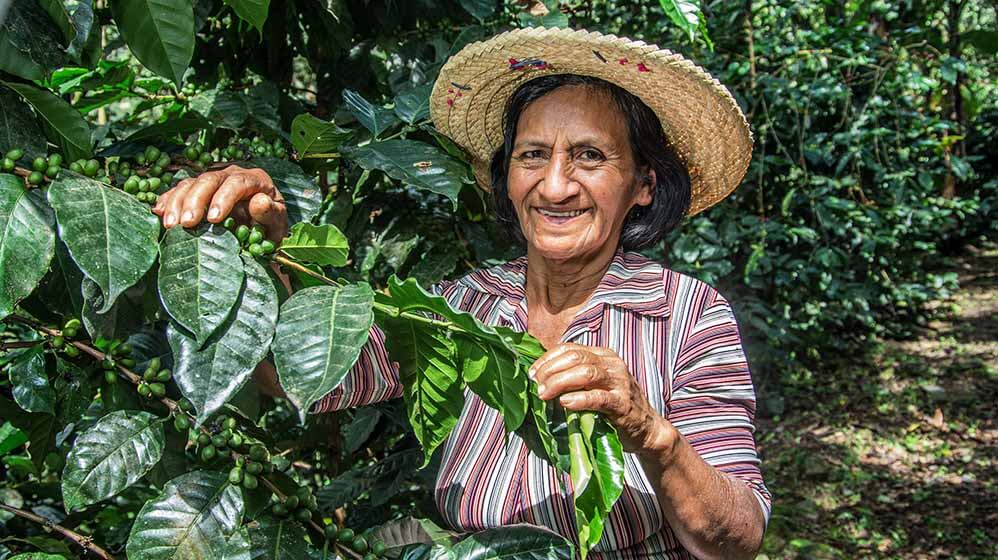

Grown in Peru in harmony with nature
This is where some of our organic coffee comes from. Learn how coffee is still traditionally grown here.
12. Juli 2022
Sustainability
Mamahuaca
Punku Rumi, a village inhabited by a group of native Quechua, lies in the north-western Andes in Peru. More than 300 people farm the land there, which has belonged to them by birthright for hundreds of years. Divided between two valleys and 17 villages, the smallholders grow their coffee using traditional methods and have banded together to form the Asociación Mamahuaca, named after a regional legend.
Whenever possible, CoffeeB sources the beans used in our two organic varieties of coffee from Mamahuaca. Café Royal and CoffeeB are Mamahuaca's main customers, together buying up practically all of the association's coffee.
The farmers of the Mamahuaca group still grow their coffee using ancient ecological methods that both protect and respect the environment. Such environmentally conscious cultivation as well as the particularly high altitude of these coffee farms guarantee the greatest possible coffee enjoyment in line with stringent expectations regarding sustainability and flavour.
Whenever possible, CoffeeB sources the beans used in our two organic varieties of coffee from Mamahuaca. Café Royal and CoffeeB are Mamahuaca's main customers, together buying up practically all of the association's coffee.
The farmers of the Mamahuaca group still grow their coffee using ancient ecological methods that both protect and respect the environment. Such environmentally conscious cultivation as well as the particularly high altitude of these coffee farms guarantee the greatest possible coffee enjoyment in line with stringent expectations regarding sustainability and flavour.
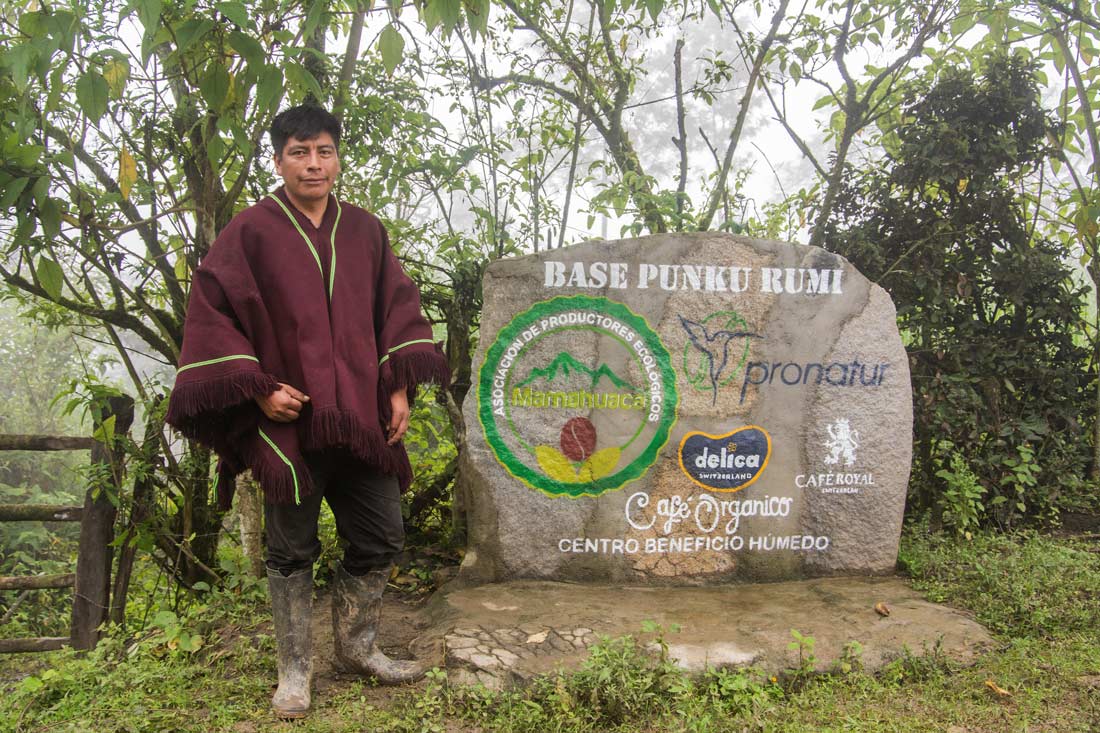
Traditional coffee growing by Mamahuaca
Mamahuaca's farmers harvest only ripe, red coffee cherries, which are then processed mechanically the very same day to separate the fruit flesh from the beans, which are then left to ferment for about 18 hours. Due to the high altitude of the farms, at between 1,500 and 2,100 metres above sea level, as well as the relatively dry climate, the fermentation process takes significantly longer than usual and is therefore gentler.
After fermentation and washing, the beans are dried in a special way. The washed beans are spread out on stones - the region's numerous boulders provide plentiful opportunities for this - and dried through the direction action of the sun. The Mamahuaca farmers' natural processing method is unique.
After fermentation and washing, the beans are dried in a special way. The washed beans are spread out on stones - the region's numerous boulders provide plentiful opportunities for this - and dried through the direction action of the sun. The Mamahuaca farmers' natural processing method is unique.
The similarities between CoffeeB and Mamahuaca
The Mamahuaca lead simple lives. Apart from coffee, which they grow for exporting, they produce and cultivate most of what they need for their own consumption: beans, corn, wheat, citrus fruits, bananas, manioc, avocados, and exotic fruits such as guava, granadilla and chirimoya (custard apple). Only rarely do the members of the Asociación Mamahuaca buy imported food in shops. Their typical clothes are also made by hand using ancient methods from the region, mainly by the community's women. In complex procedures taking several weeks, sheep's wool and alpaca fibres are dyed using natural dyes made from leaves or fruit and then turned into blankets, bags, ponchos, and dresses. Coffee plants also play an important role in their culture and their everyday lives: every July, the locals celebrate the annual "Festival anual de café". Their traditional costumes are also decorated with accessories from coffee plants.
This simplicity and proximity to nature can also be found in the organic Coffee Balls we produce from the Mamahuaca's coffee beans. Reducing ingredients to the absolute minimum, using what nature gives us responsibly and an active coffee culture are all values that are shared by CoffeeB and Mamahuaca. They produce the perfect symbiosis for the best possible coffee enjoyment.
You can find more countries of origin for our coffee beans in our article on sustainability certificates.
This simplicity and proximity to nature can also be found in the organic Coffee Balls we produce from the Mamahuaca's coffee beans. Reducing ingredients to the absolute minimum, using what nature gives us responsibly and an active coffee culture are all values that are shared by CoffeeB and Mamahuaca. They produce the perfect symbiosis for the best possible coffee enjoyment.
You can find more countries of origin for our coffee beans in our article on sustainability certificates.
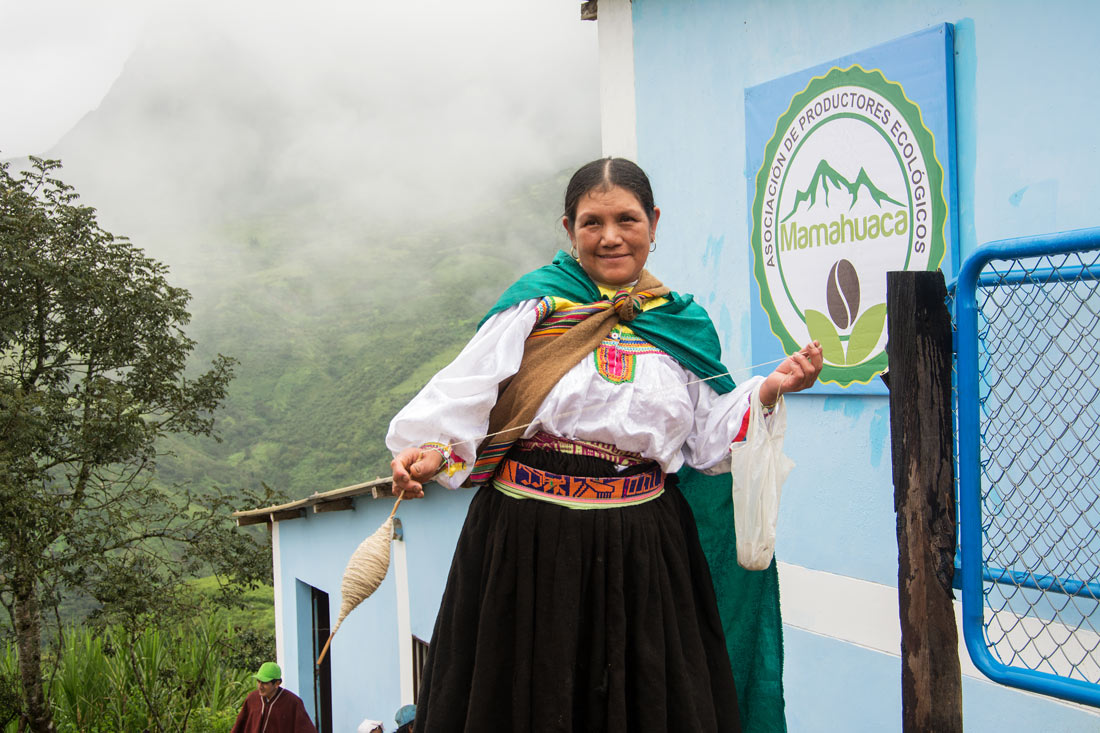


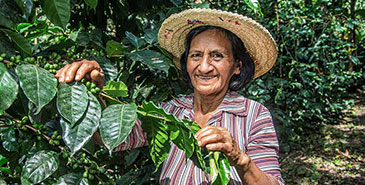
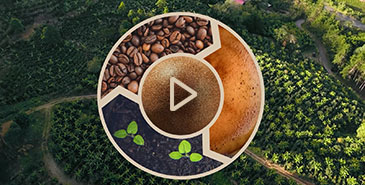
 Café Royal
Café Royal
.svg)
.svg)